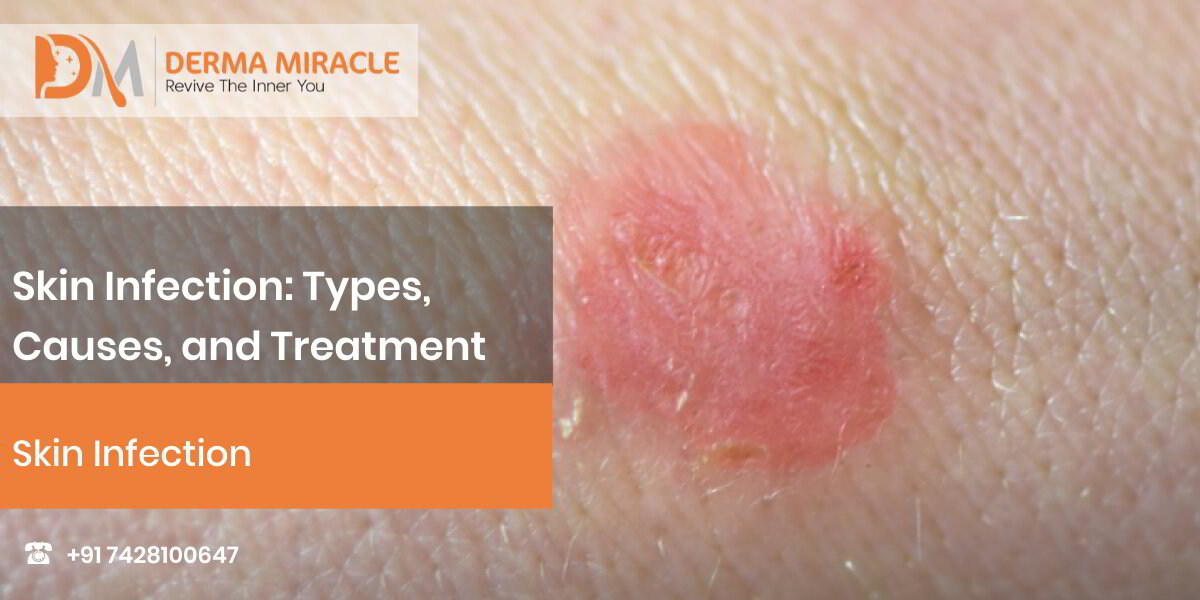Table Of Content
How Does Your Skin Get Infected?
The cause of a skin infection depends on the type of infection.
- The different bacterial infections happen from different types of bacteria.
- The viral infections occur from one of three groups of viruses: herpes virus, poxvirus, and human papilloma virus.
- The fungal infections affect people living in the hot and moist environment by different fungal species.
- Parasites or small organisms present under the skin lay eggs and can cause skin infections.

Symptoms
The symptoms of a skin infection vary depending on the type of infection. Common symptoms include:
- Redness of the skin and a rash
- Itching
- Pain
- Tenderness
Signs of a severe infection include:
- Blisters
- Pus
- Skin sloughing, breakdown
- Dark, necrotic-appearing skin
Types
Here are some of the types of skin infections.
Bacterial Skin Infections
Bacterial skin infections often start as small red bumps that gradually increase in size. Some bacterial infections are mild and easily treated with topical antibiotics, but other infections may require an oral antibiotic.Different kinds of bacterial skin infections are:
- Impetigo
- Boils
- Cellulitis
- Leprosy
Viral Skin Infections
Viruses cause different viral skin infections. The different types of viral infections are:
- Chickenpox
- Shingles
- Warts
- Molluscum contagiosum
- Measles
- Hand, foot, and mouth disease
Fungal Skin Infections
Fungal skin infections are caused by a fungus and are most likely to develop in the feet or armpit. Some fungal infections are contagious, and some are not
Following are the fungal infections:
- Athlete’s foot
- Ringworm
- Yeast infection
- Oral thrush
- Nail fungus
Parasitic Skin Infection
Parasitic skin infections are caused by parasites. These infections can spread into the bloodstream and organs too. Parasitic infections are not life-threatening, but they can be uncomfortable.
Most common parasitic skin infections are:
- Bedbugs
- Lice
- Scabies
- Cutaneous larva migrans

Treatment
Treatment depends on the cause of the infection and its severity. Some types of viral skin infections go away on their own after a few days or weeks.
Bacterial infections are usually treated with topical antibiotics applied directly to the skin or oral antibiotics. Because the bacteria are resistant to antibiotics, treatment of the infection may require intravenous antibiotics in a hospital.
You can use available anti-fungal sprays and ointments to treat fungal skin infections. If your condition does not improve, see your doctor for a prescription. Alternatively, you can apply medicated creams to your skin to treat skin infections caused by parasites. Your doctor may also recommend medications to relieve discomfort, such as anti-inflammatory drugs.
CONSULT DEMAMIRACLE
Skin Infection: Types, Causes, and Treatment
ACT BEFORE IT’S TOO LATE

FREE CONSULTATION AVAILABLE
Contact Us
